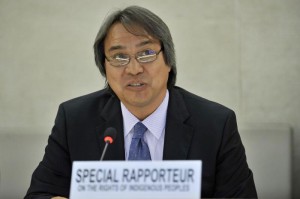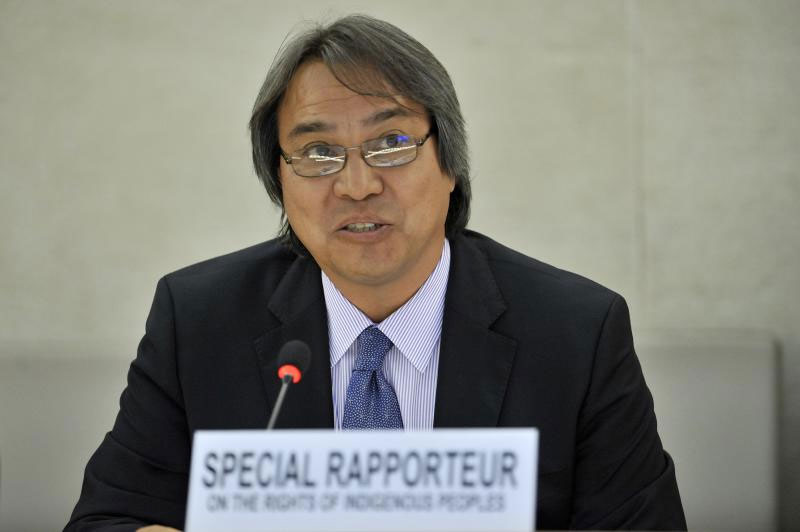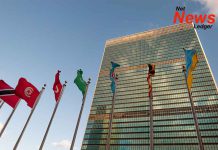
NEW YORK – The United Nations is entering the discussion between Canada and First Nations. “I am encouraged by reports that Prime Minister Steven Harper has agreed to meet with First Nations Chiefs and leadership on 11 January 2013 to discuss issues related to aboriginal and treaty rights as well as economic development,” stated James Anaya, the Special Rapporteur on the rights of indigenous peoples at the United Nations. “Both the Government of Canada and First Nations representatives must take full advantage of this opportunity to rebuild relationships in a true spirit of good faith and partnership”.
The United Nations independent expert today urged the Canadian Government to establish a meaningful dialogue with the country’s aboriginal leaders in light of recent protests.
For weeks, aboriginal leaders and activists carried out protests referred to as ‘Idle no more,’ according to a news release from the Office of the UN High Commissioner for Human Rights (OHCHR). It noted that the movement has been punctuated by the hunger strike of Chief Theresa Spence of the Attawapiskat First Nation, which began on 11 December.
“I would like to add my voice to the concern expressed by many over the health condition of Chief Spence, who I understand will be joining indigenous leaders at this week’s meeting,” the Mr. Anaya said.
United Nations Independent Expert Encourages Dialogue
The independent expert stressed that the dialogue between the Government and First Nations should proceed in accordance with standards expressed in the UN Declaration on the Rights of Indigenous Peoples. The Declaration states that indigenous peoples have the right to maintain their distinct identities and cultures as a basis of their development and place in the world, to pursue their own destinies under conditions of equality, and to have secure rights over lands and resources, with due regard for their traditional patterns of use and occupancy.
In particular, Mr. Anaya highlighted one of the preambles in the Declaration which affirms that treaties, agreements and other arrangements are the basis for a strengthened partnership between indigenous peoples and States.
The Government affirmed a “commitment to continue working in partnership with Aboriginal peoples and in accordance with a relationship based on good faith, partnership and mutual respect,” when it released a statement supporting the Declaration on 12 November 2010, said Mr. Anaya, who has asked the Canadian authorities to provide relevant information on this matter, in accordance with the terms of his mandate from the UN Human Rights Council.
“I will continue to monitor developments as I hold out hope that the 11 January meeting will prompt meaningful and restorative action by the Government and First Nations leadership,” Mr. Anaya added.
Independent experts, or special rapporteurs such as Mr. Anaya, are appointed by the Human Rights Council to examine and report back on a country situation or a specific human rights theme. The positions are honorary and the experts are not UN staff, nor are they paid for their work.




